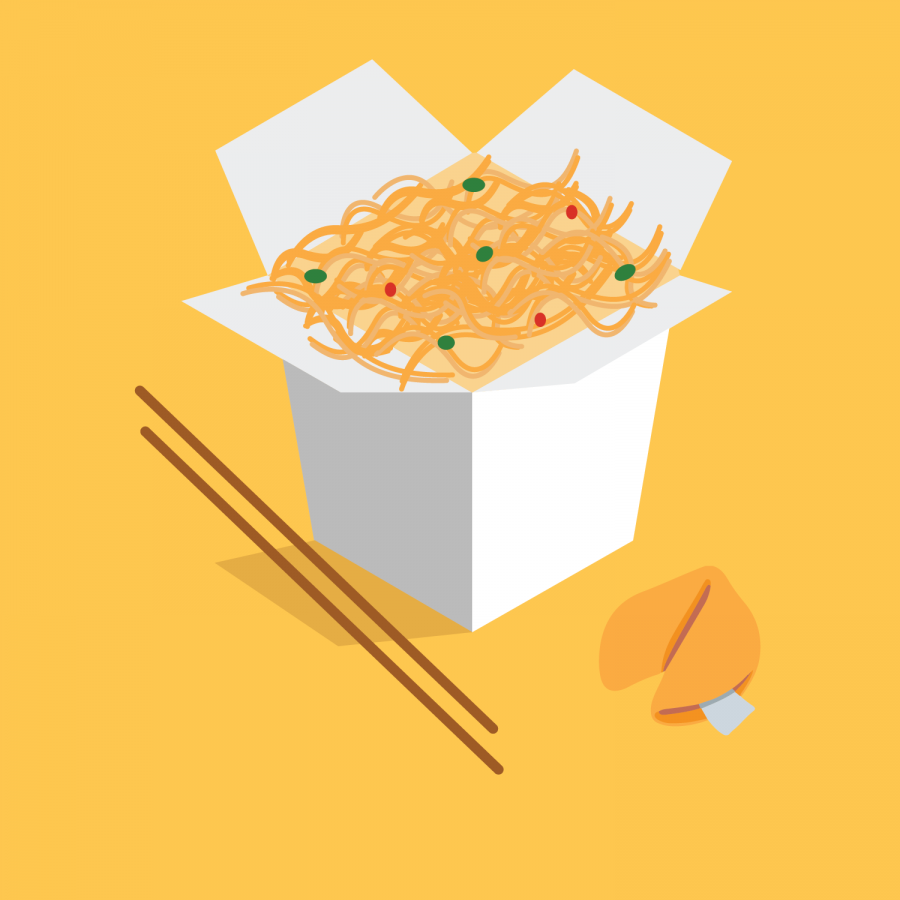Chinese restaurants fail to present Chinese culture
March 13, 2018
Even from the start of human society, food has increasingly become more of a social interaction and a vehicle for communicating culture rather than satisfying basic needs.
Chinese restaurants on campus also apply to this; however, many of them fail to provide people with a real Chinese dining experience. They’re often over-commercialized, have a low service quality and don’t serve real Chinese food.
If you asked a random student on campus to name a Chinese dish, their answer will probably be fried rice, sesame chicken or sweet-and-sour pork. But when we ask Chinese students about these dishes, the answer is that they’ve never heard of them — at least before they came here. Many Chinese students and scholars traveled half the globe to study here, and out of the many things they miss back home, authentic Chinese food might be the one they are longing for the most.
Wang Chunzheng, a premier chef committee member of the China Hospitality Association and co-owner of Mr. Chou & Charles Inc., said American Chinese restaurants just don’t compare.
“Places like Panda Express and other American style Chinese restaurants do a great job at marketing and are very popular to American people,” he said. “But these restaurants do not serve real Chinese food, and cannot convey Chinese food culture to people around campus.”
Get The Daily Illini in your inbox!
“Cooking Chinese food requires a deep understanding of the Chinese culture,” Chunzheng added.
Culture behind Chinese food runs deep. From many regional cuisines to the potential health benefits it can provide, the greatest problem of restaurants arounds campus is that cooks don’t really care about the traditions and philosophy behind Chinese food; they only cook for sales.
The outcome of this problem is that Chinese food is not Chinese food anymore, but instead fast food chains that serve Chinese style food. What’s worse is that some of them don’t even implement real Chinese flavor. They’re just flavors named solely to appeal to the consumer.
When talking about how he was trained to be a chef, Chunzheng said: “The lecture and training I received are mostly about ideology and philosophy of cooking. Instead of simply teaching the craftsmanship of the cooking, they taught me most about how a real chef conducts himself.”
A chef can’t speak about authentics without the knowledge of tradition. Many Chinese cooks at the University ignore the conversations about traditions and have little consideration about what they want to convey with the food they’re serving.
They’re mishandling the responsibility of a real Chinese chef — to convey Chinese culture.
“With many Chinese restaurants on campus, these restaurants should realize that they are a way of cultural exchange between China and the U.S.,” he said. “When Chinese students want to take their friends to taste Chinese food, these restaurants fail to present what is real Chinese food.”
Taking a step further, Chinese cooks around campus should also recognize that they play an important role in culture exchange. To succeed in that, they need the knowledge of Chinese culture that enables their restaurants to serve authentic Chinese food. By doing this, they not only provide both enjoyable services to customers, but also convey their specific message.
Chinese food not only satisfies hunger like no other, but it also conveys meaning endowed by the chef who prepared it. And at the University especially, which is gifted with diversity, it could be a great way to introduce Chinese food culture to fellow students.
Restaurants on campus should start to serve food with that responsibility in mind — and when that happens, students around here can truly be introduced to authentic Chinese food.
Li is a freshman in DGS.







